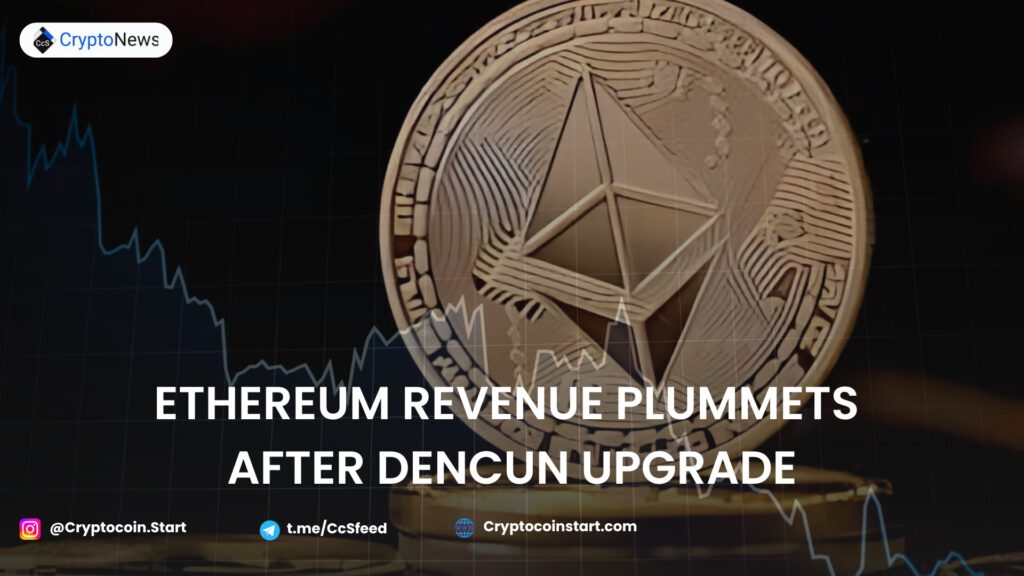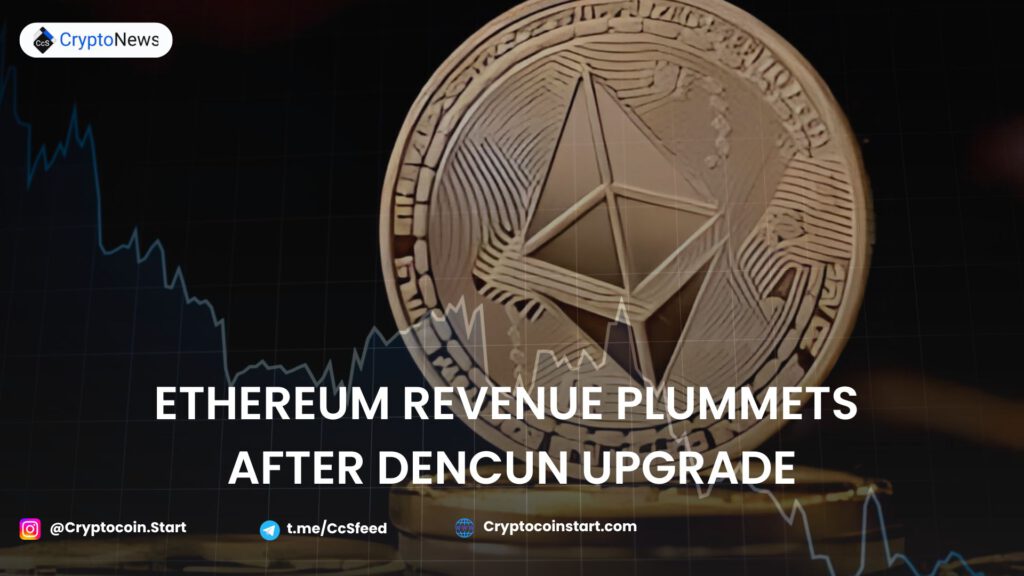
Ethereum’s Revenue Decline Post-Dencun Upgrade
Ethereum’s revenue has experienced a significant decline following the Dencun upgrade. According to Galaxy Research, Ethereum’s Layer 1 (L1) protocol revenues dropped to nearly zero after this upgrade. This development is seen as a crucial part of Ethereum’s scaling strategy. The platform discussed this situation in detail on its social media channels.
Reasons Behind the Decline in Ethereum’s L1 Revenue
Galaxy Research identifies several factors contributing to the decline in Ethereum’s L1 revenues:
- The increasing dominance of Layer 2 (L2) solutions like zk-rollups, Arbitrum, and Optimism. These solutions handle transactions off-chain and settle them on Ethereum’s L1.
- Before the Dencun upgrade, Ethereum’s L1 generated revenue from transfer fees associated with these settlements. However, the upgrade improved the efficiency of L2 interactions with L1, thereby minimizing costly L1 interactions.
- The Dencun upgrade optimized rollup costs and data availability, leading L2 solutions to incur fewer fees to Ethereum’s L1 protocol.
Implications for Ethereum’s Long-Term Security Model
While the Dencun upgrade has reduced transaction fees, it also significantly diminishes the direct revenue Ethereum L1 earns from L2-based operations. The nearly zero revenue from L2 activities reflects the increasing dominance of these scaling solutions. As they handle a large portion of Ethereum’s transaction volume, much of the activity is effectively outsourced from the main network.
One of the primary concerns is the sustainability of Ethereum’s Layer 1 security model. According to Galaxy Research, Ethereum relies on transaction fees to reward validators and maintain security. With L2 solutions assuming a greater share of the transaction load, the long-term sustainability of Ethereum’s security model could be at risk unless new revenue sources or incentives are introduced.
Positive Developments and Potential Risks
The reduction in transaction costs due to the Dencun upgrade offers a positive outcome for users, as lower fees can enhance accessibility and usability. However, this development also necessitates close monitoring of its impact on Ethereum’s economic model.
The Ethereum community and developers need to consider new strategies to address these challenges. If alternative revenue streams and incentive mechanisms are not created, the network’s security and sustainability could be compromised.
Strategies for Ensuring Ethereum’s Future Growth and Security
To maintain a balanced ecosystem for both users and validators, it is essential to carefully evaluate these changes and take necessary precautions. The following strategies could be considered:
- Developing new fee structures that can generate sustainable revenue while maintaining affordable transaction costs.
- Introducing alternative incentive mechanisms for validators to ensure they continue to secure the network despite reduced fee revenues.
- Exploring additional use cases for Ethereum that could bring new revenue streams to the protocol.
- Enhancing collaboration between L1 and L2 developers to create synergistic solutions that benefit both layers.
Conclusion
The Dencun upgrade has undoubtedly influenced Ethereum’s revenue model, presenting both opportunities and challenges. While the reduction in transaction fees is a welcome development for users, it also brings uncertainties regarding the long-term security and sustainability of the network.
For Ethereum to continue its growth trajectory and maintain its security, the community must adapt to these changes proactively. By considering new strategies and maintaining a focus on security and scalability, Ethereum can navigate this critical phase in its development and continue to be a leading platform in the blockchain ecosystem.


